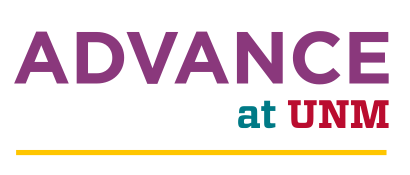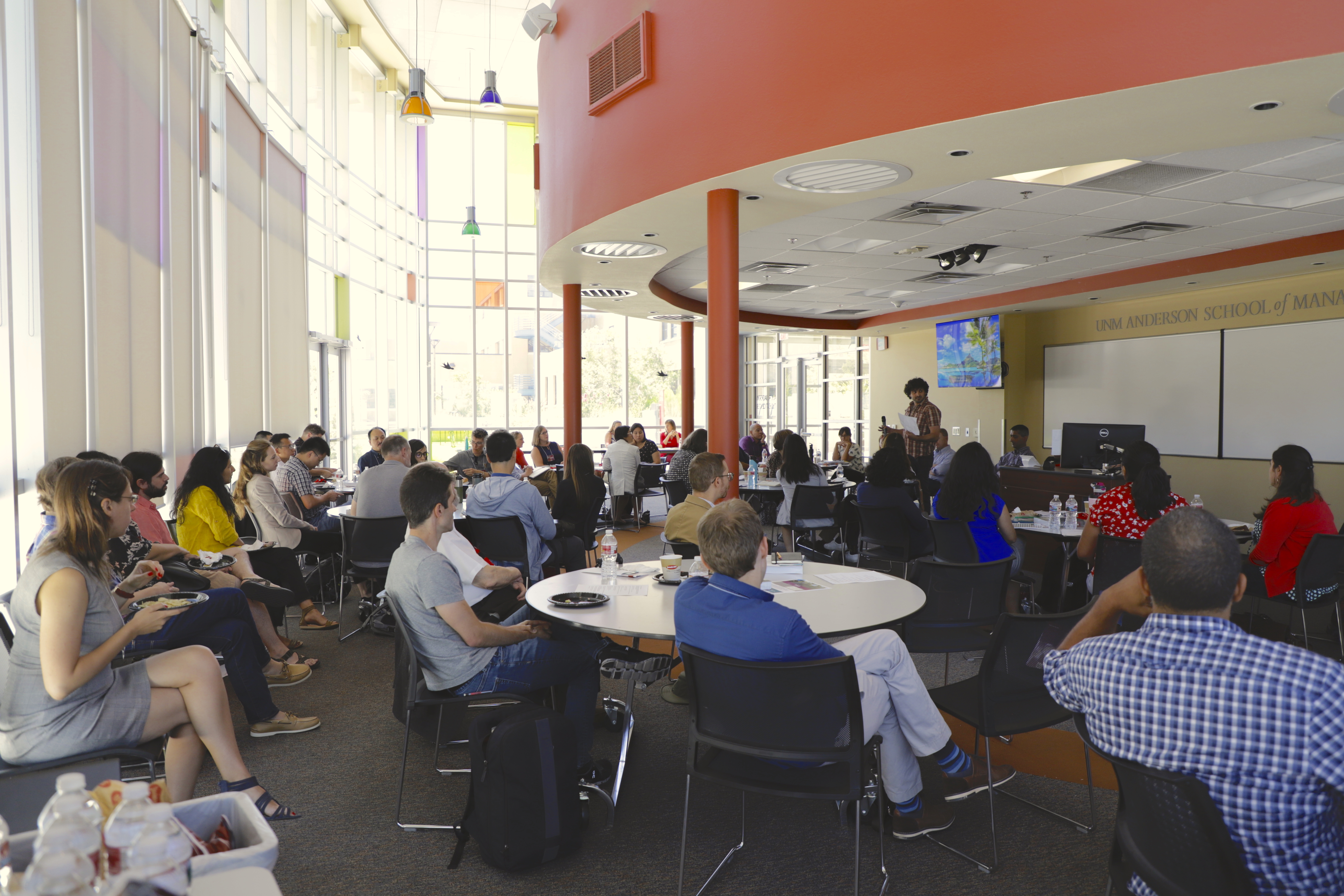New UNM faculty are most diverse group in several years
The University of New Mexico has welcomed approximately 60 new faculty for the 2019 school year, including 32 hires in the College of Arts and Sciences, which boasts its most diverse group of new faculty hires in the last five years.
The new hires include Dr. Carlos Nye of the Department of Speech and Hearing Sciences, who focuses on treating speech sound disorders in bilingual children; Dr. Maryam Hojati of the Department of Civil Construction & Environmental Engineering, whose research is on material and structural engineering, and Dr. Shuya Wei of The Department of Chemical and Biological Engineering, who focuses on developing high energy batteries.

Nye, an assistant professor, specifically focuses on how to facilitate the acquisition of speech skills across languages.
Most recently, Nye finished his dissertation that treated sounds similar in both Spanish and English for four bilingual children with speech delays. They taught the children that different sounds make different meanings between words. Once achieved, they looked for generalization of the skill in the words of the other language.
“We administered therapy only in Spanish for these sounds and found the accuracy of production increased in English as well. This study demonstrates one way to address the speech needs of bilingual children in both languages, which is so important if they are to be successful communicators across their settings,” Nye said.
Nye says he’s received a warm welcome at UNM and is so far enjoying the sense of community on campus.
“Everyone has been incredibly welcoming and gone out of their way to help and support my start here at the university. It feels like family and I appreciate that aspect a lot,” Nye said.
Regarding his future at UNM, Nye says he’s optimistic.
“I’m excited about my research. I really look forward to connecting more with the student population and local communities to learn their needs and how my research can support those in the area of bilingualism and general community health. I’m also excited to be in the classroom and share the knowledge I have acquired with the next generation of scholars and leaders.”

Hojati has also made the move to UNM where she’s been welcomed as assistant professor with research interests ranging from the design and development of innovative and green construction materials, development of sustainable and resilient infrastructure, numerical modeling of structures, and most recently 3D printing of concrete.
“My current research is focused on digital construction of cementitious materials and mostly about minimizing human involvement to provide affordable, sustainable and safe construction process,” Hojati said.
Back at Penn State University, Hojati said her team participated in the NASA 3D-Printed Habitat Challenge, where she successfully designed a composite material made of components indigenous to Mars and Earth and designed a deployable 3D printer system to utilize the material.
“We won four awards in different phases of this competition and printed the first-ever fully-enclosed 3D-printed structure on an architectural scale and in an almost autonomous process without any support structure, in May 2019,” Hojati said.
At UNM, Hojati says she’s enjoying the supportive working environment in her department and across the university.
“I believe this safe and supportive environment provides room for individual growth which is highly essential for new hired faculties. Additionally, the university offers excellent resources for the new professors to establish their research and find the right collaboration and communication with other colleagues across the campus,” Hojati said.
Her long term goal at UNM, she says, will focus on the development of innovative construction materials, advanced fabrication systems, and novel engineering design techniques to enable construction of affordable housing and infrastructure.
“Considering the current rapid urbanization, climate change, and resource shortages, the number of individuals and people needing safe, affordable, and dignified housing and infrastructures will increase over the next few years. The digital revolution could provide great potential to reduce construction cost and time, make the construction process and the built environment more eco-friendly and improve the quality of built structures,” Hojati said.

Wei, a new assistant professor, looks forward to continuing her pursuit of developing next generation batteries for energy and environmental applications at UNM.
To do this, Wei’s research focuses on the electrochemical processes in electrodes and electrode/electrolyte interfaces. Additionally, Wei is interested in nanocomposite and biomaterial design and their use in electrochemical energy storage.
“I hope by understanding the fundamental transport processes in electrochemical systems, I have the opportunities to develop practical high-energy metal-based batteries,” Wei said.
Wei says she’s enjoying the collegial environment in her department at UNM and her first school of engineering open house.
“Junior faculty received extremely warm welcomes and valuable resources from senior faculty members in the department. I enjoyed the school of engineering open house activities on Sept. 28. Our faculty and students worked together to show kids and their parents from high/middle schools what real problems they can solve as chemical engineers in the future and what they can learn at UNM and CBE,” Wei said.
Wei says her current research projects include developing affordable, chemical-waste batteries by using earth-abundant materials that capture and convert greenhouse gases while they simultaneously generate and store electricity.
“I look forward to developing an independent research program about energy storage at UNM. I want to make efforts to alleviate energy and environment problems for society,” Wei said.
Are you a new faculty member? If so, check out our new faculty information page for resources on how you can make the best out of UNM!

